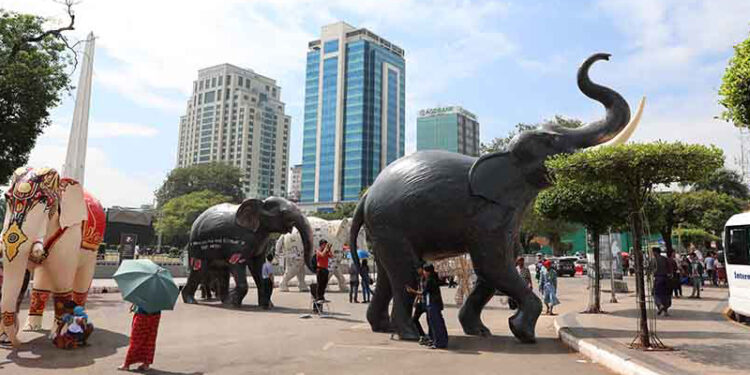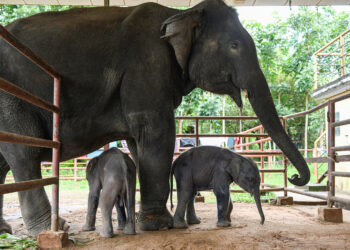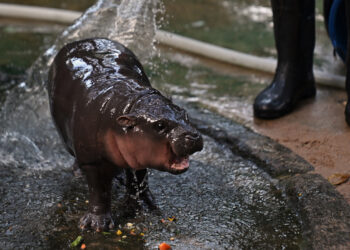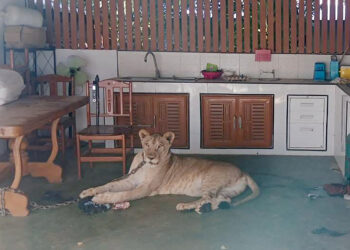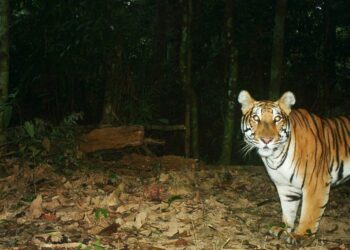YANGON — The World Wildlife Fund (WWF) expressed hope that its six-month campaign to raise awareness of elephant poaching and wildlife smuggling, which ended Wednesday, would lead to the closure of illegal wildlife markets in Yangon.
“We’re hoping the [illegal wildlife] markets in Shwedagon [Pagoda] and Bogyoke Market close in April. We have initiated steps for their closure, and are now waiting for the government to make an announcement,” WWF Myanmar partnership director Daw May Moe War said on Wednesday.
The six-month nationwide campaign “Voices for MoMos” was launched on Nov. 4 in response to an alarming increase in the rate of elephant poaching in Myanmar—estimated at almost one elephant per week since January 2017.
The campaign is named after a popular 64-year-old elephant in the Yangon Zoo whose name has become virtually synonymous with elephants among Myanmar’s children. It calls on individuals and organizations to use their voices to speak up for the animals.
“Voices for MoMos” was organized by six international wildlife conservation agencies—WWF; Wildlife Conservation Society; Fauna and Flora International; Biodiversity and Nature Conservation Association; Friends of Wildlife; and Grow Back for Posterity—in cooperation with Myanma Timber Enterprise and the Forestry Department under the Ministry of Natural Resources and Environmental Conservation.
At a press conference in Yangon on Tuesday, WWF said the campaign had raised awareness among shopkeepers at Shwedagon Pagoda and Bogyoke Market about the trade in illegal wildlife parts and products, and the relevant laws.
WWF will hold the “Voices for Wildlife” music festival in Yangon’s Mahabandoola Park on April 7. The final public event related to the campaign, it is being organized with the support of the Danish Embassy.
Yangon Region Chief Minister U Phyo Min Thein is set to attend the festival, and Danish Ambassador Peter Lysholt Hansen said he was hopeful the regional government would make an announcement on that day.
“There have been calls to halt the illegal wildlife trade in Yangon before Thingyan [in mid-April]. We don’t know if it will happen, since we aren’t the government. But I believe the concerned authorities will make a decision at the music festival on April 7,” the ambassador said.
Organizers of “Voices for MoMos” have called for all illegal wildlife markets across the country to be closed over the next two years.
Handicrafts made from elephant skin and parts such as tails and tusks are sold in Yangon, Mandalay and at Kyaiktiyo Pagoda in Mon State, but most of them are smuggled into China and thriving wildlife markets in the Golden Triangle, where the borders of Thailand, Laos and Myanmar converge, posing a grave threat to the survival of Myanmar’s elephants.
In the past, elephants were mainly poached for their tusks, but they are increasingly targeted for their hide, and the number of poached elephants been rising.
Dr. Zaw Min Oo, a manager at Myanma Timber Enterprise, confirmed that the illegal trade in elephant hide had grown since last year, though the business has existed in the country for a long time.
Myanmar’s elephant population is now estimated at between 1,400 and 2,000—a drastic decline from about 10,000 in the 1940s, according to the Forestry Department.


